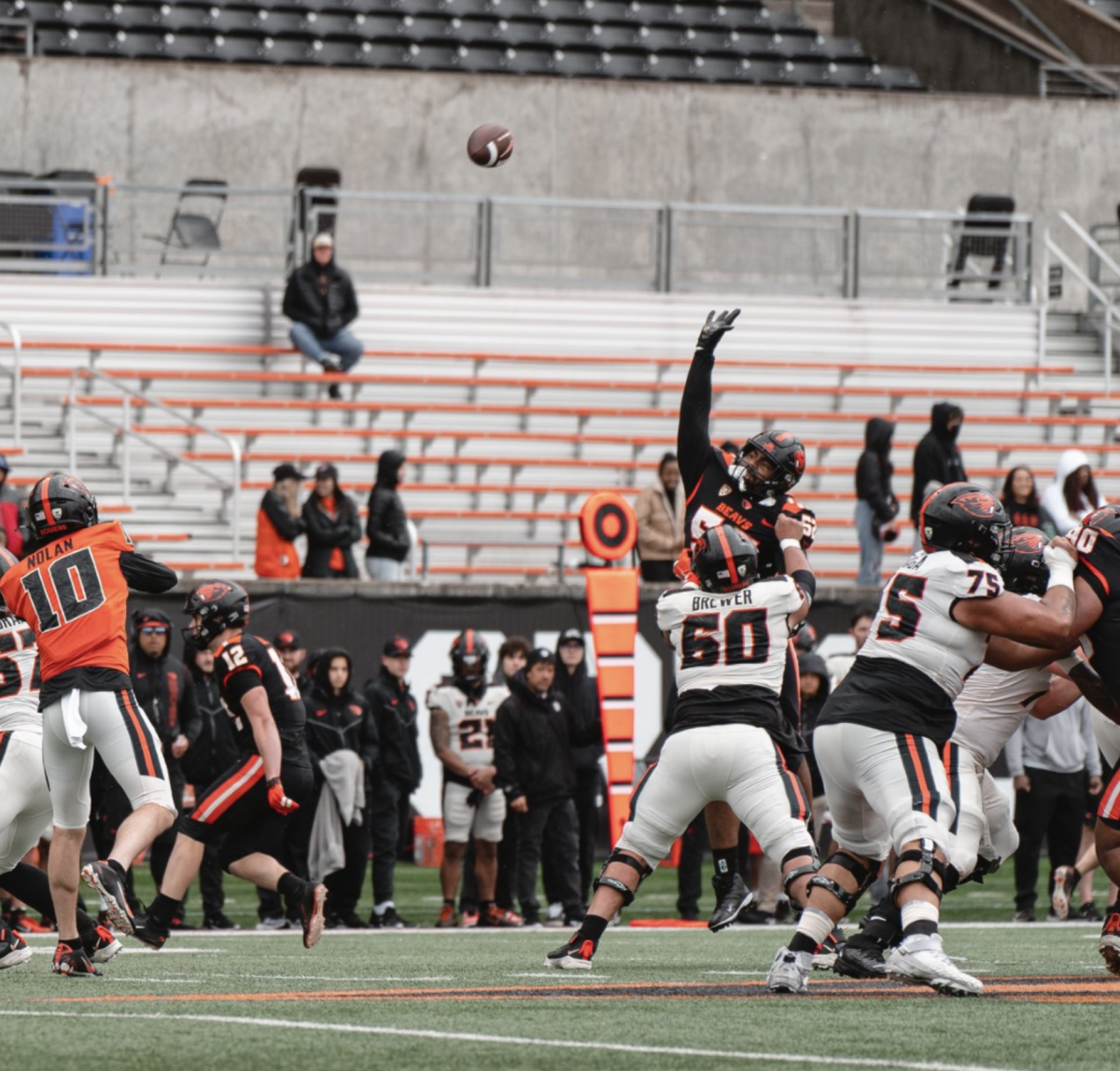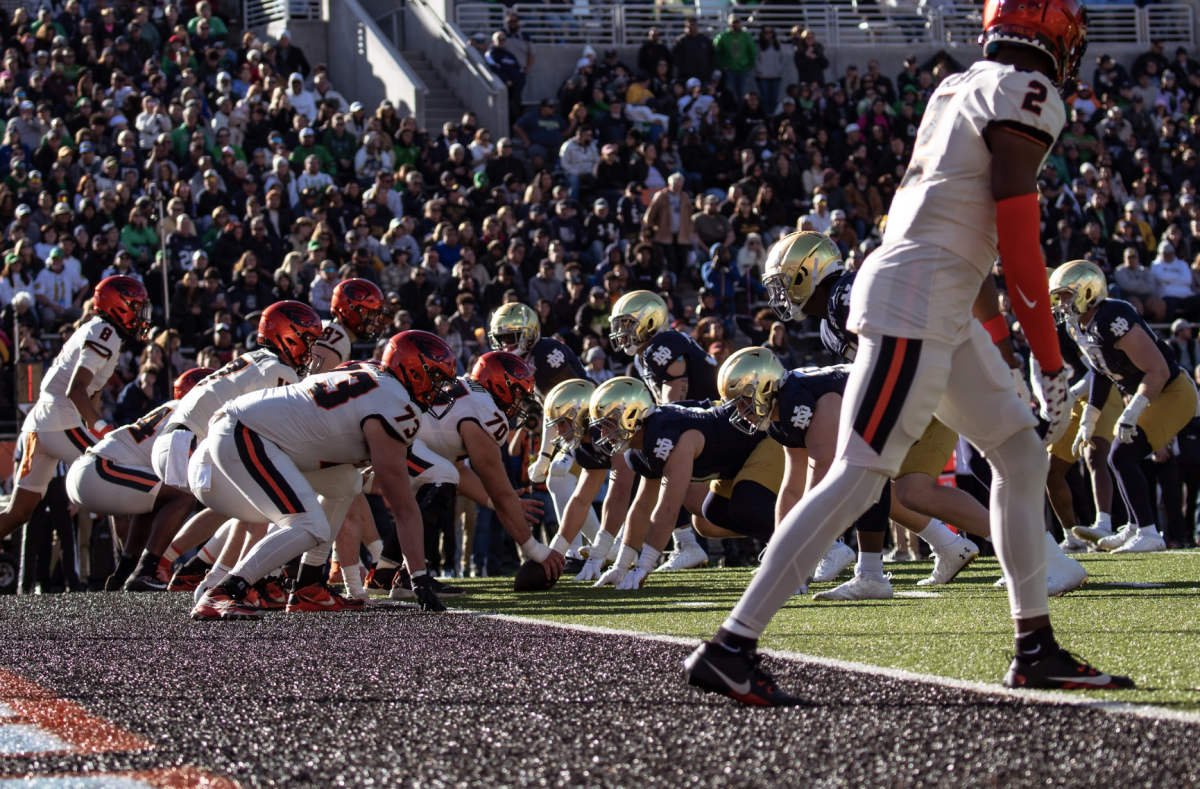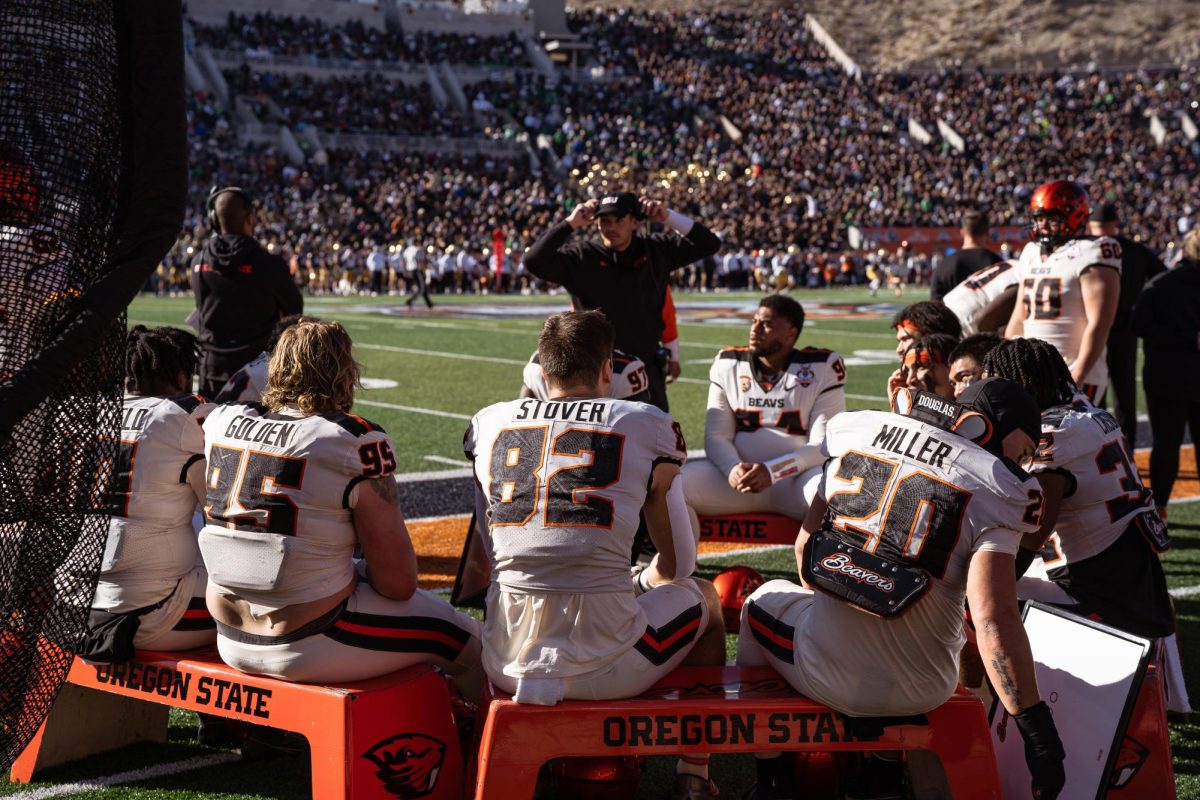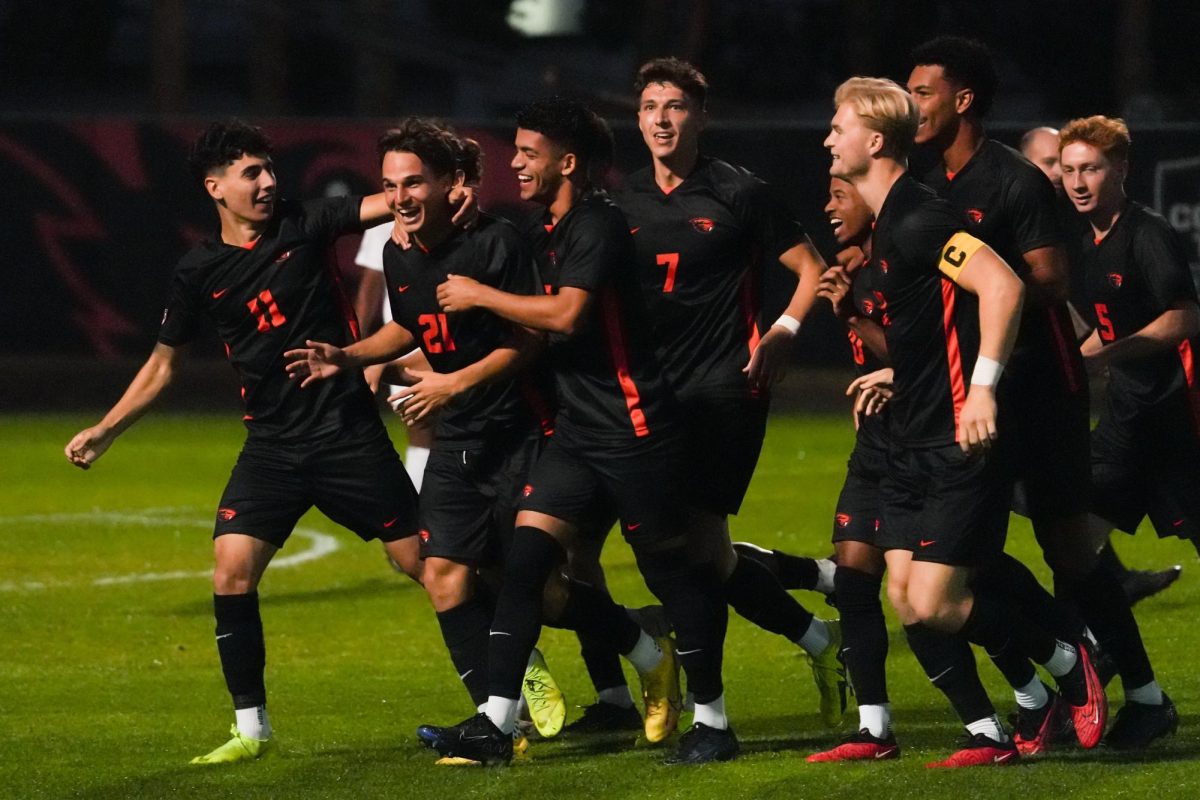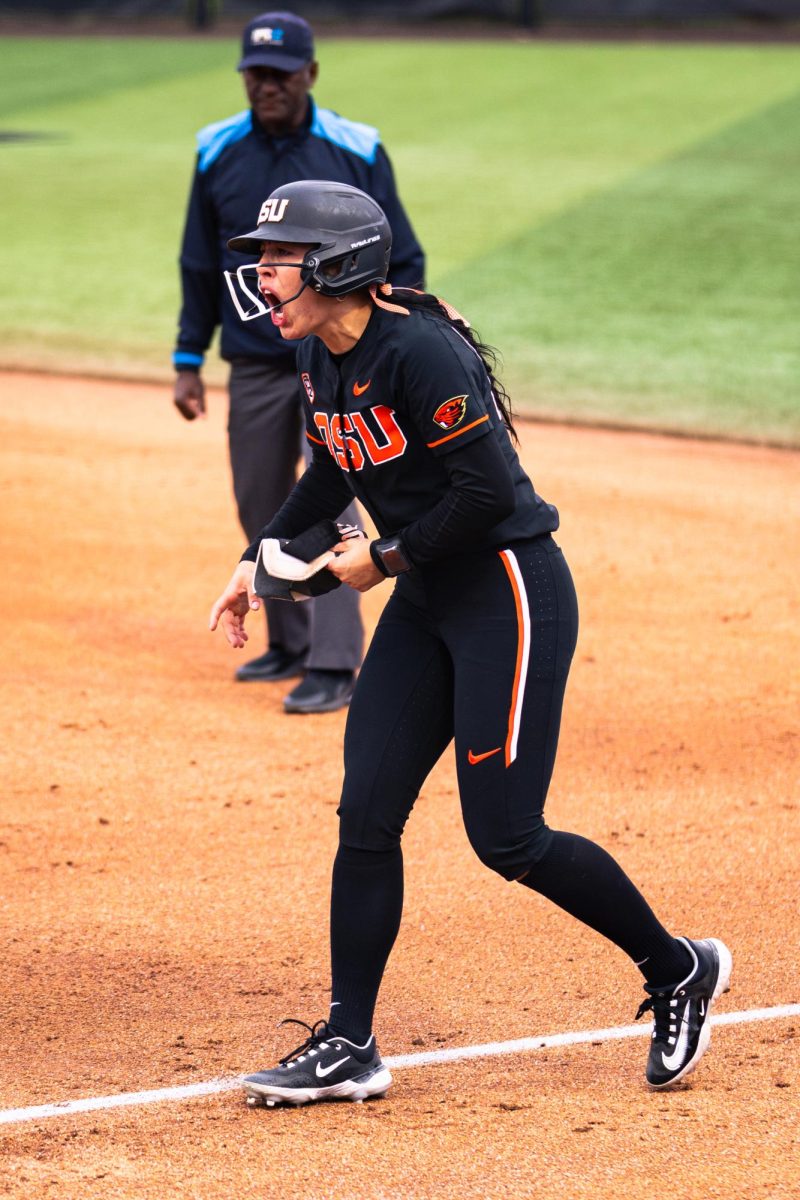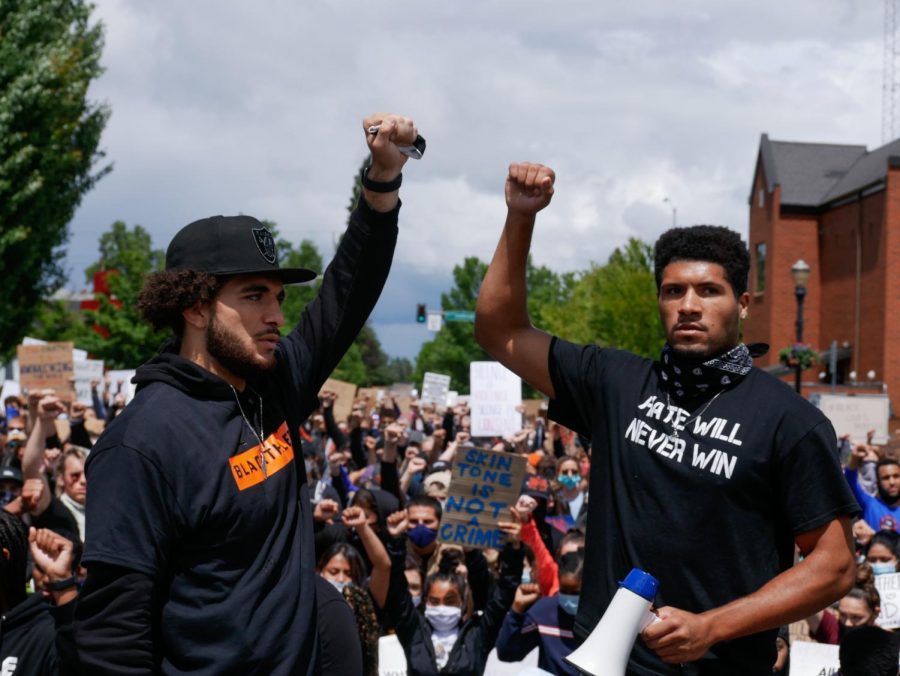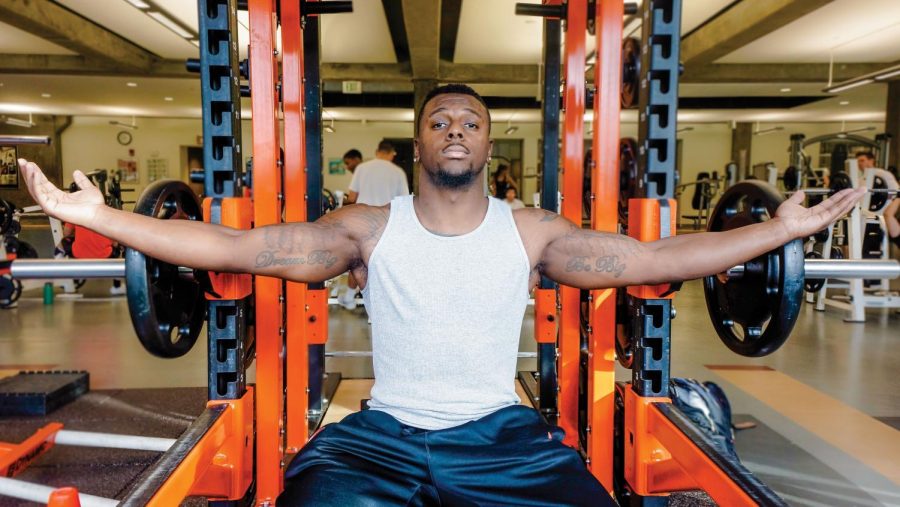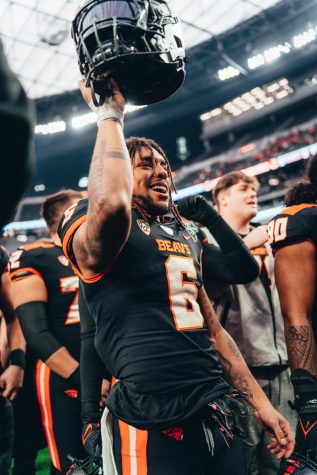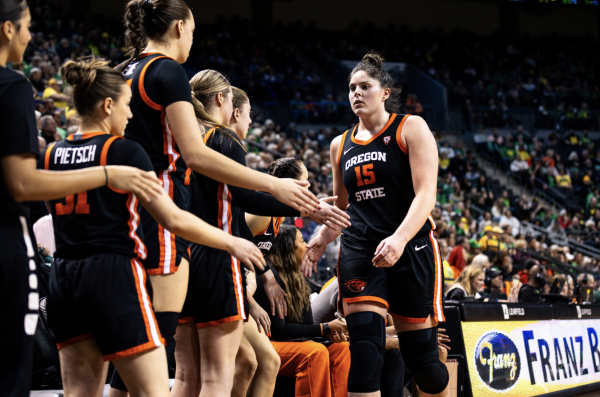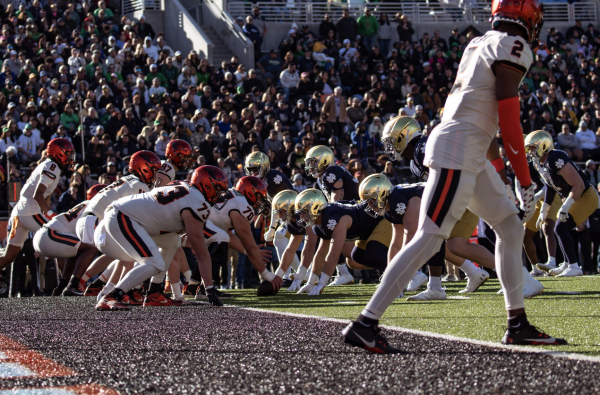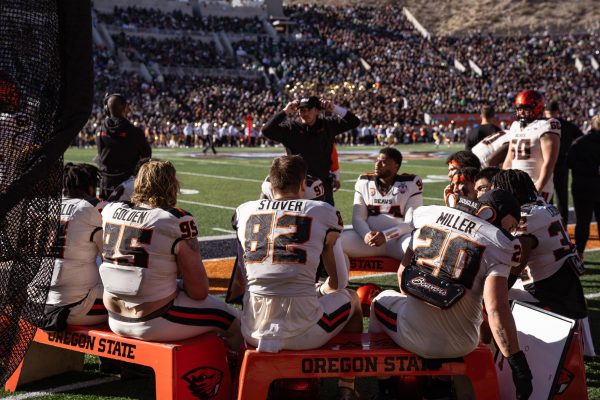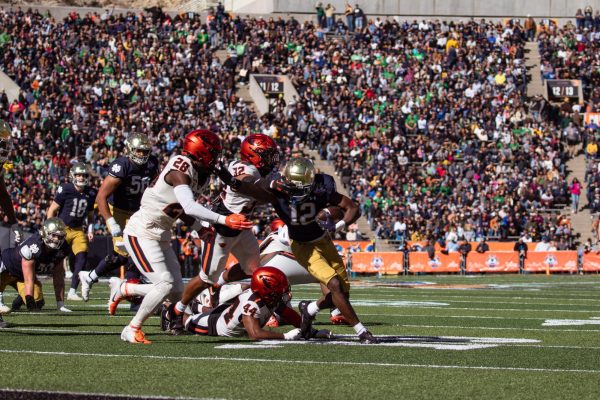Can’t Stop Tim Cook
January 19, 2016
Bullet wounds, getting cut and injuries have only been bumps in road for Tim Cook
The bullet tore through Tim Cook’s leg, missing his shin bone by millimeters and exiting cleanly through his calf. The victim of a robbery gone wrong, while at a junior college teammate’s apartment in 2012, Cook was “in the wrong place at the wrong time.”
Getting shot has been one of many afflictions for Cook, who now is a running back on Oregon State’s football team.
He grew up in a rough area in Arkansas, failed to qualify academically coming out of high school and got cut from the football team at Butler Community College in Kansas. He played at Eastern Arizona College for two years and finally seemed close to his dream of playing Division-I football when he committed to OSU in May. Then, just before Cook had a chance to compete for a starting spot when fall camp opened, he sustained a season-ending injury in a weight room accident.
“You always have that thought in the back of your head, ‘what if I do this again?’” he said. “But you’ve just got to overcome that. In life, you’ve got to overcome adversities.”
The son of a Marine, Cook learned early in his life how to attack difficulties. It wasn’t always easy, but Cook had a tight-knit family to help.
“Growing up in a minority area, I always had to work for everything. Things weren’t given to me at all,” he said. “(My father) developed the mentality in me of always working hard, being accountable, being reliable, pushing yourself to the limit. My mom always had my back about things. My whole family always supported me.”
Cook was a standout prospect at White Hall High School in Arkansas, benching 350 pounds as a sophomore and bulking up to 6-foot-1, 227 pounds his senior year. He ran the 40-yard dash in 4.38 seconds twice in front of college scouts. He’s fielded more than 20 scholarship offers, earning interest from Wisconsin, Louisville, Arkansas, California, Arizona, Ole Miss, Mississippi State, Colorado State, Iowa State, Louisiana Tech and more.
Though he was named the Southeast Arkansas Defensive Player of the Year in high school, Cook’s grades prevented him from playing for the schools that desired his blend of size and speed. He detoured to Butler, where he redshirted his first year. Just days before the Junior College National Championship game in 2012, Cook was playing Madden with a teammate in an on-campus apartment when a man attempted to break and enter. Cook went down with a bullet to the leg, the thief was arrested and Cook had a night he would “never forget.”
“On a scale of one to ten (of painfulness), it was probably like a four or five. I was more mad than I was hurting,” Cook said. “I was like, ‘how could I be in this situation?’ But I couldn’t control it. Life just puts you in situations and you’re tested every day. You just have to overcome adversity. That’s one thing that Butler taught me.”
Cook didn’t take long to bounce back — he was walking by the next day and was “limping around on it playing basketball two days later.” He looked forward to his second year at Butler, but due to a conference rule limiting out-of-state players for each school, the Arkansas native had to compete for a roster spot. The battle came down to him and Lawrence Mattison, who happened to be committed to Oregon State at the time but needed to qualify academically at Butler before transferring. Mattison won the spot and Cook was cut from the roster. Cook thought about quitting football for good and moving back to Arkansas, but instead was “blessed with another opportunity” to revive his career by transferring to Eastern Arizona Community College.
“Whenever you get cut, it does something to you,” Cook said. “The greatest have been cut. I remember hearing a story about Michael Jordan being cut in high school and it just fueled his fire. To be honest, I’m very fueled right now. I have a lot of hostility that I need to relieve in football pads.”
Shortly after Cook transferred, Mattison quit the team at Butler and never ended up at OSU. Butler tried to contact Cook with their newly opened roster spot, but Cook had already found a new home in Arizona.
“I found it funny that the guy that they chose over me had committed to Oregon State and now I’m here at Oregon State,” Cook said. “I don’t know the story with (Mattison) but I wish him the best.”
Cook’s time in Arizona marked the turnaround of his career. He earned second-team all-conference honors in 2014 while playing all over the field: running back, defensive end, linebacker, returner and anywhere else the coaches put him. Most importantly, he graduated — the first of his family to do so — and was eligible to transfer to any school he wanted.
According to OSU running backs coach Telly Lockette, recruiting Cook was a “no brainer.” Cook chose OSU because of the chance to earn immediate playing time, and he arrived in Corvallis ready to prove himself as a Pac-12 running back.
That all changed during a summer workout, when Cook tore his pectoral muscle while benching 410 pounds. Not only was 410 pounds not his maximum weight, he was able to hold the bar in place after he tore the muscle before getting help from his spotter.
“When he initially did it, he was so calm we thought it was a general (pectoral) strain,” said Strength and Conditioning Coach Evan Simon, who was in the weight room at the time.
Yet, Cook’s attitude while missing the season was not one of anger or frustration. Instead, he valued the chance to watch running back Storm Woods finish out his senior year.
“It gave me an opportunity to watch Storm as a veteran, just see how he handled the game,” Cook said. “I took a lot of mental notes while being on the sideline cheering for my team.”
“It kind’ve made him more hungry,” added freshman tight end Noah Togiai on Cook’s injury. “He always talked about how he’s going to come back stronger.”
Despite everything Cook’s been through, he still has plenty ahead of him. After using a medical redshirt this year, Cook will be a fifth-year junior for the 2016 season.
“For most kids to go through all the traumatic stuff he’s been through, they’d probably be depressed and be down,” Lockette said. “But he’s always energetic. He’s always helping other players and encouraging them.”
“He’s showed flashes. He can be a great one.”
Cook agrees, and he tattooed himself to prove it with a giant lion across his chest.
“People say they’re lionhearted and don’t necessarily act the part,” he said. “I try to be a leader, I try to not be a follower. I’m not a follower.”
Now, his goals are to graduate from OSU, which he expects to do in the fall, bring OSU to a new level after a 2-10 campaign last year and then move on to the NFL.
Every plan has a hitch, Cook knows, so he’s looked into other options if the NFL doesn’t work out. He’d like to use his sociology degree to become a police officer, stemming from his experience as a child.
“I grew up in an environment where things weren’t necessarily great,” he said. “I saw where cops were needed and where they were most appreciated. I feel like I could make a difference in people’s lives and try to change some of the stereotypes for cops.”
Right now, Cook is focused on finishing his rehab and being prepared for next season, when he expects his playing abilities to finally find the limelight.
“Everything should be good to go by spring time,” he said. Then, he paused, disliking the ambiguity.
“Everything will be good to go by spring time,” he added, with an emphasis on ‘will.’
His confidence is valid. If he can handle being shot, getting cut from a junior college, sustaining an injury and still be where he is today, who is going to stop Tim Cook?
On Twitter @BrightTies

























